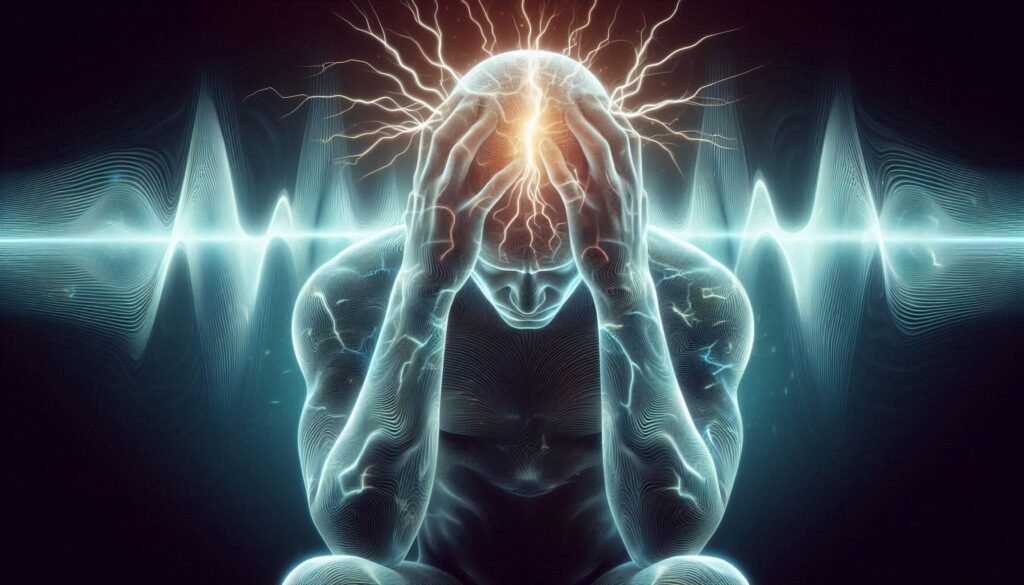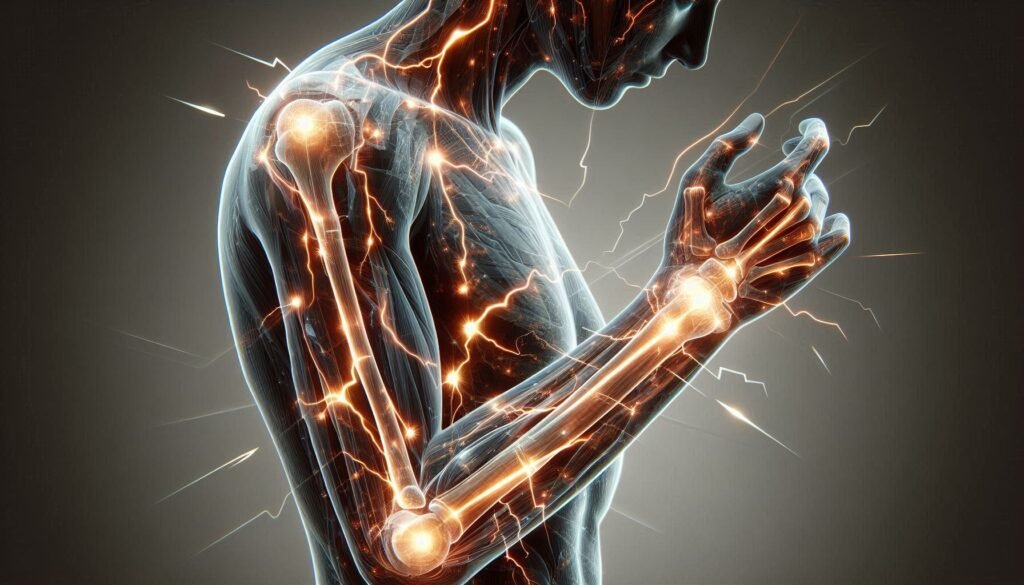Paresthesia, characterized by tingling or prickling sensations in the skin, can often leave individuals puzzled and concerned. While it may seem like a harmless annoyance, the underlying causes can be linked to serious health issues. One significant contributor that is frequently overlooked is substance abuse, particularly alcohol and various drugs.
Understanding how these substances impact nerve function is crucial for anyone struggling with paresthesia or looking to support a loved one facing this challenge. Many people are unaware that their drinking habits or drug use could be at the root of their discomfort. The role of alcohol and substance abuse in paresthesia deserves attention as it sheds light on a complex relationship between lifestyle choices and neurological health.
In this article, we will delve into the mechanisms through which alcohol and illicit drugs affect our nervous system, explore nutritional deficiencies associated with substance use, discuss withdrawal symptoms that may arise when quitting, and examine treatment options available for those grappling with addiction-related neuropathy.
Join us as we navigate this important topic—understanding how these substances shape our body’s signals can empower you toward healthier choices and improved well-being.

Understanding Paresthesia: A Brief Overview
Paresthesia refers to unusual sensations in the skin, often described as tingling, prickling, or numbness. These sensations can occur in various parts of the body and may be temporary or chronic. Commonly experienced during sleep or when a limb is compressed, paresthesia typically resolves quickly once pressure is relieved.
However, persistent paresthesia can signal underlying health issues. Conditions such as diabetes, multiple sclerosis, and vitamin deficiencies are known culprits. Identifying the root cause is essential for effective management and treatment.
The nervous system plays a vital role in how we perceive these sensations. Damage to nerves—whether from injury, disease, or substance abuse—can lead to altered signals that manifest as paresthesia. This disruption highlights the importance of maintaining nerve health for overall well-being.
Understanding this condition allows individuals to recognize when they should seek medical advice. It also emphasizes the interconnectedness between lifestyle choices and neurological function.
Alcohol-Induced Neuropathy: Mechanisms and Symptoms
Alcohol-induced neuropathy is a significant concern for those who consume alcohol excessively. The body metabolizes alcohol into toxic substances that can damage nerve cells over time. This process disrupts normal nerve function, leading to various symptoms of neuropathy.
Symptoms often begin as tingling or numbness in the extremities and may progress to weakness or pain. Individuals might experience a burning sensation, primarily affecting hands and feet. These sensations can drastically impair daily activities and overall quality of life.
Long-term heavy drinking also leads to nutritional deficiencies, especially vitamin B12 deficiency, which is vital for nerve health. Insufficient levels of this essential nutrient exacerbate nerve damage caused by alcohol exposure.
Moreover, chronic alcohol consumption affects blood flow to nerves, further complicating their function. Understanding these mechanisms is crucial for recognizing the risks associated with excessive drinking and its potential effects on peripheral nerves.
How Chronic Alcohol Abuse Affects the Nervous System
Chronic alcohol abuse can lead to significant changes in the nervous system. Alcohol is a neurotoxin, meaning it has harmful effects on nerve cells. Over time, prolonged exposure disrupts normal brain function and impairs communication between neurons.
One major consequence is alcoholic neuropathy. This condition manifests as damage to peripheral nerves, leading to symptoms like numbness, tingling, or pain in the extremities. The severity of these symptoms often correlates with the duration and amount of alcohol consumed.
Additionally, chronic drinking affects neurotransmitter levels. Alcohol alters the balance of essential chemicals responsible for transmitting signals in the brain. This imbalance can result in mood disorders and cognitive dysfunction.
Moreover, heavy drinking may exacerbate existing conditions such as diabetes or vitamin deficiencies. These factors further compromise nerve health and contribute to paresthesia sensations experienced by those battling addiction.
Illicit Drugs and Their Impact on Nerve Function
Illicit drugs can significantly impair nerve function, leading to various neurological symptoms, including paresthesia. Substances like cocaine and methamphetamine disrupt normal brain chemistry and blood flow, which can harm the peripheral nervous system. Users often report tingling sensations in their extremities after prolonged use.
Opioids, though sometimes prescribed for pain relief, when misused as illicit substances can also cause nerve damage. These drugs affect pain perception but may lead to a condition known as opioid-induced hyperalgesia, where increased sensitivity results in painful sensations throughout the body.
Additionally, hallucinogens such as LSD or ecstasy alter sensory processing in the brain and may contribute to abnormal tactile experiences. This disruption leads users to experience heightened sensitivity or numbness.
Moreover, chronic usage of these substances often depletes essential vitamins and minerals necessary for proper nerve health. A deficiency in B vitamins is particularly notorious for causing neuropathy-related symptoms like tingling or burning sensations.
Prescription Drug Abuse: Opioids and Benzodiazepines
Prescription drug abuse, particularly involving opioids and benzodiazepines, has become a significant public health issue. Opioids are often prescribed for pain management but can lead to dependence and addiction when misused. Chronic use may result in neuropathy, characterized by tingling or numbness in the extremities. This condition occurs as nerve function deteriorates due to the drugs’ effects on neurotransmitters.
Benzodiazepines, commonly prescribed for anxiety and insomnia, also pose risks of misuse. They depress the central nervous system, affecting nerve signals and potentially leading to paresthesia symptoms like buzzing sensations or pins and needles feelings.
Both classes of drugs can alter brain chemistry over time. This alteration impacts not only mood but also physical sensation throughout the body. As tolerance develops, users may increase dosages without medical guidance—exacerbating nerve-related issues.
Addressing prescription drug abuse requires awareness of its profound impact on neurological health. Those struggling with dependency need tailored support to navigate withdrawal safely while managing associated symptoms effectively.
Nutritional Deficiencies in Substance Abuse and Paresthesia
Nutritional deficiencies are a significant concern for those struggling with alcohol and substance abuse. Poor dietary habits often accompany addiction, leading to insufficient intake of essential vitamins and minerals. These deficiencies can have profound effects on nerve health.
One critical nutrient is vitamin B12. This vitamin plays a vital role in maintaining the myelin sheath that protects nerves. A lack of B12 can result in paresthesia, characterized by tingling or numbness in the extremities. Similarly, thiamine (B1) deficiency is common among heavy drinkers and can lead to Wernicke-Korsakoff syndrome, further exacerbating nerve damage.
Additionally, low levels of folate and magnesium may contribute to impaired nerve function as well. When individuals don’t consume balanced meals while using substances, their bodies struggle to repair damaged nerves effectively.
Addressing these nutritional gaps is crucial for recovery from substance abuse-related paresthesia. Nutritional support should be part of any comprehensive treatment plan aimed at restoring overall health and promoting proper nervous system functioning.
Withdrawal Symptoms: When Quitting Leads to Tingling Sensations
Withdrawal from alcohol or substance abuse can trigger a range of symptoms, including tingling sensations known as paresthesia. When the body is suddenly deprived of these substances, it reacts in various ways. This reaction often includes abnormal nerve sensations like tingling and numbness.
These symptoms occur due to changes in how the nervous system processes signals. As the brain adjusts to functioning without drugs or alcohol, nerve pathways may misfire, resulting in sensory disturbances. The experience can be uncomfortable and alarming for those going through withdrawal.
Tingling can manifest predominantly in extremities such as hands and feet but may also affect other parts of the body. Individuals might describe feelings ranging from mild pins-and-needles to intense burning sensations.
Understanding this aspect of withdrawal is crucial for both patients and healthcare providers. It highlights why professional support during detoxification is essential for managing these distressing symptoms effectively.
Diagnosing Substance-Induced Paresthesia: Challenges and Approaches
Diagnosing substance-induced paresthesia presents unique challenges for healthcare providers. Symptoms like tingling or numbness can be vague and overlap with various neurological conditions, making accurate diagnosis difficult. A thorough patient history, including substance use patterns, is crucial to differentiate between causes.
Healthcare professionals often rely on clinical assessments combined with diagnostic tests such as nerve conduction studies. However, these tests may not always pinpoint the exact cause of paresthesia if multiple factors are at play. Understanding the context of each patient’s symptoms helps narrow down potential triggers.
Patients may also hesitate to disclose their substance use due to stigma or fear of judgment, complicating diagnosis further. Open communication fosters a supportive environment where patients feel safe discussing their habits and concerns.
In many cases, doctors must consider a range of substances—alcohol, illicit drugs, and prescription medications—to create an effective diagnostic strategy tailored to individual needs. This comprehensive approach is vital for identifying the root cause behind paresthetic symptoms effectively.
Treatment Options for Addiction-Related Neuropathy
Treatment for addiction-related neuropathy often begins with addressing the underlying substance use disorder. Engaging in a comprehensive rehabilitation program can help individuals break free from alcohol and drugs, ultimately alleviating some of the nerve damage symptoms.
Medications may also play a crucial role in managing neuropathic pain. Doctors might prescribe anticonvulsants or antidepressants to help relieve discomfort associated with nerve damage. These medications target specific neurotransmitter pathways, leading to improved sensations and reduced pain levels.
Physical therapy is another vital component of treatment. It focuses on strengthening muscles and improving overall coordination, which can enhance mobility while reducing feelings of numbness or tingling. A tailored exercise plan helps re-establish proper nerve function over time.
Additionally, nutritional support is essential for recovery. Many people struggling with substance abuse experience vitamin deficiencies that exacerbate neuropathy symptoms. Incorporating a balanced diet rich in vitamins B1, B6, B12, and other nutrients can foster healing and promote better nerve health moving forward.
Recovery and Nerve Health: Long-Term Outlook and Prevention
Recovery from the effects of alcohol and substance abuse on paresthesia can be a gradual process. However, with commitment and support, many individuals experience significant improvements in their nerve health. Addressing the root cause of addiction is crucial for effective recovery. This often involves therapy, support groups, and sometimes medication to manage withdrawal symptoms.
In terms of prevention, maintaining a balanced diet rich in essential vitamins can help protect against nutritional deficiencies that may lead to nerve damage. Regular check-ups with healthcare professionals can monitor any potential issues related to substance use before they escalate.
Staying active through exercise promotes blood circulation and overall nervous system health. Mindfulness practices such as yoga or meditation can also alleviate stress—an important factor that may contribute to both substance abuse and nerve-related symptoms.
Understanding the role of alcohol and substance abuse in paresthesia empowers individuals to take proactive steps toward better health. Recovery is not just about quitting substances but fostering a lifestyle that prioritizes physical well-being and mental clarity. With dedication to these changes, long-term relief from paresthesia becomes an achievable goal for many recovering individuals.


